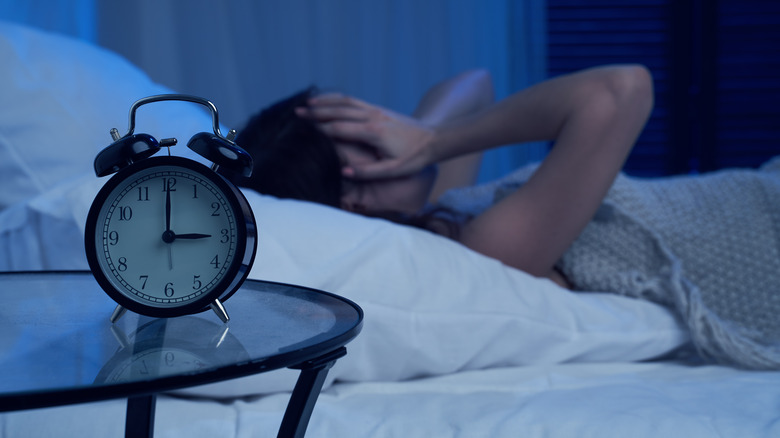What Happens To Your Brain When You Wake Up During The Night
Who doesn't want a good night of sleep? When we go to sleep, we don't really want to see the light of day again until, well ... it's day.
If you wake up in the middle of the night, the good news is that it is (probably) normal. In fact, Fitbit found that the typical adult may awaken up to 30 times each night, but may not even remember since the awakenings were so brief. Fewer (but still plenty of) people have awakenings so significant that they are actually memorable. This is still not necessarily a problem as long as you can fall back to sleep quickly, and you aren't suffering fatigue during the day.
A 2010 study in Sleep Medicine found that slightly more than one-third of participants reported waking up at least three nights per week. More concerningly, 43% of people with nocturnal awakenings had difficulty falling back to sleep. Understandably, this correlates with poorer sleep quality and more impairment during the day. It is also associated with insomnia, according to The Journal of Psychiatric Research. Insomnia is when you have difficulty falling or staying asleep.
Effects of insomnia on the brain
The typical adult needs at least seven hours of sleep per night to function normally. Even in the short-term, not getting enough sleep can affect a person's stress hormones, leading many people to become moody or even volatile in response to everyday stressors. Sleep deprivation also wreaks havoc with the prefrontal cortex, which may cause people to become more forgetful and less alert (per American Sleep Association). Neurons become overworked and can no longer function normally. This can reduce reaction time and lead to symptoms similar to being drunk (per Sleep Foundation).
People who regularly suffer from sleep deprivation may be at risk of developing false memories, and in the long-term, they may even be more susceptible to Alzheimer's disease. According to the Sleep Foundation, this may be because getting poor sleep impairs the brain's ability to weed out the harmful substances that clump together to cause Alzheimer's disease.
For these reasons and more, Mayo Clinic recommends seeing a doctor if your sleeping problems make it difficult to function during the day.


